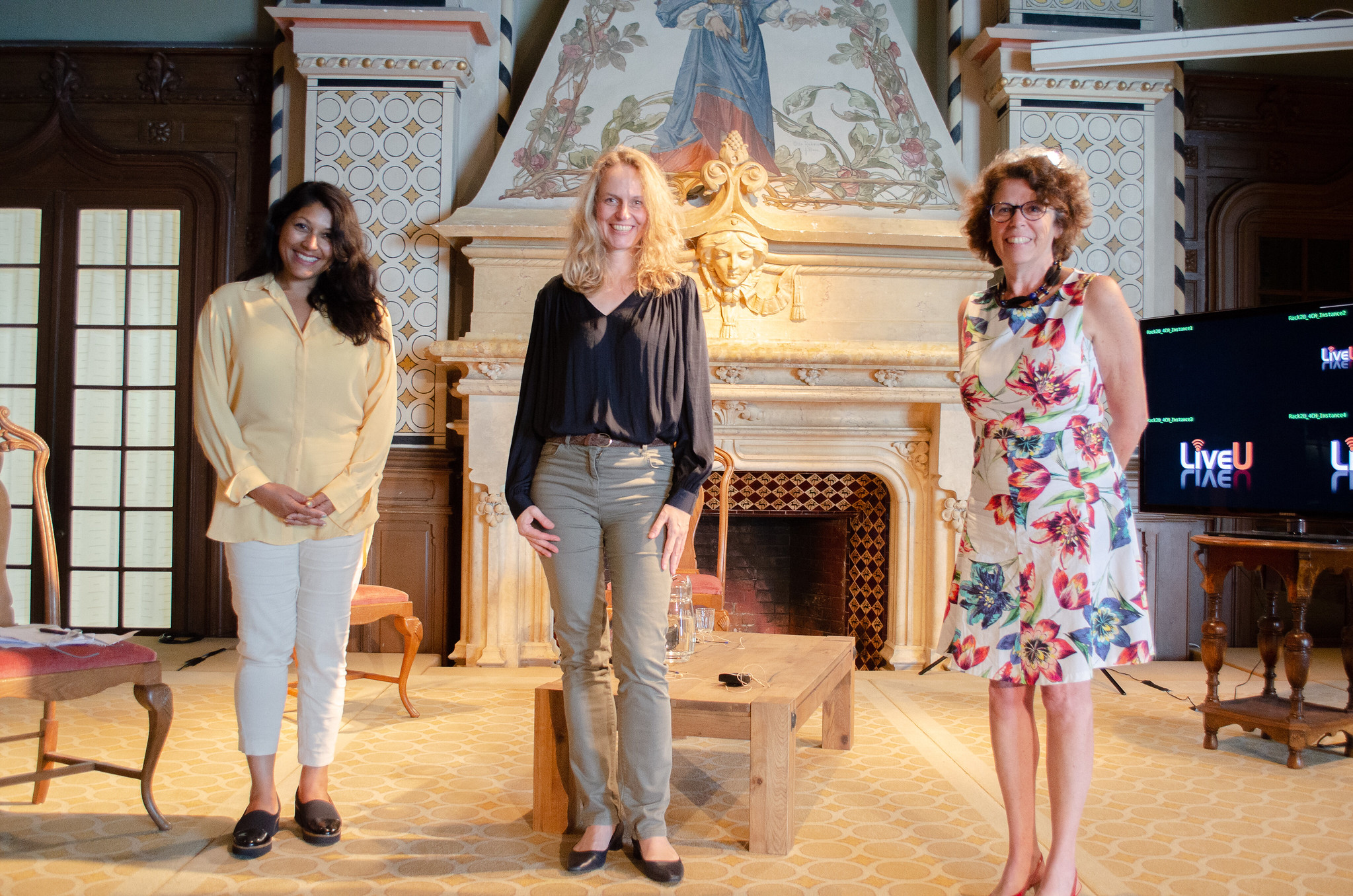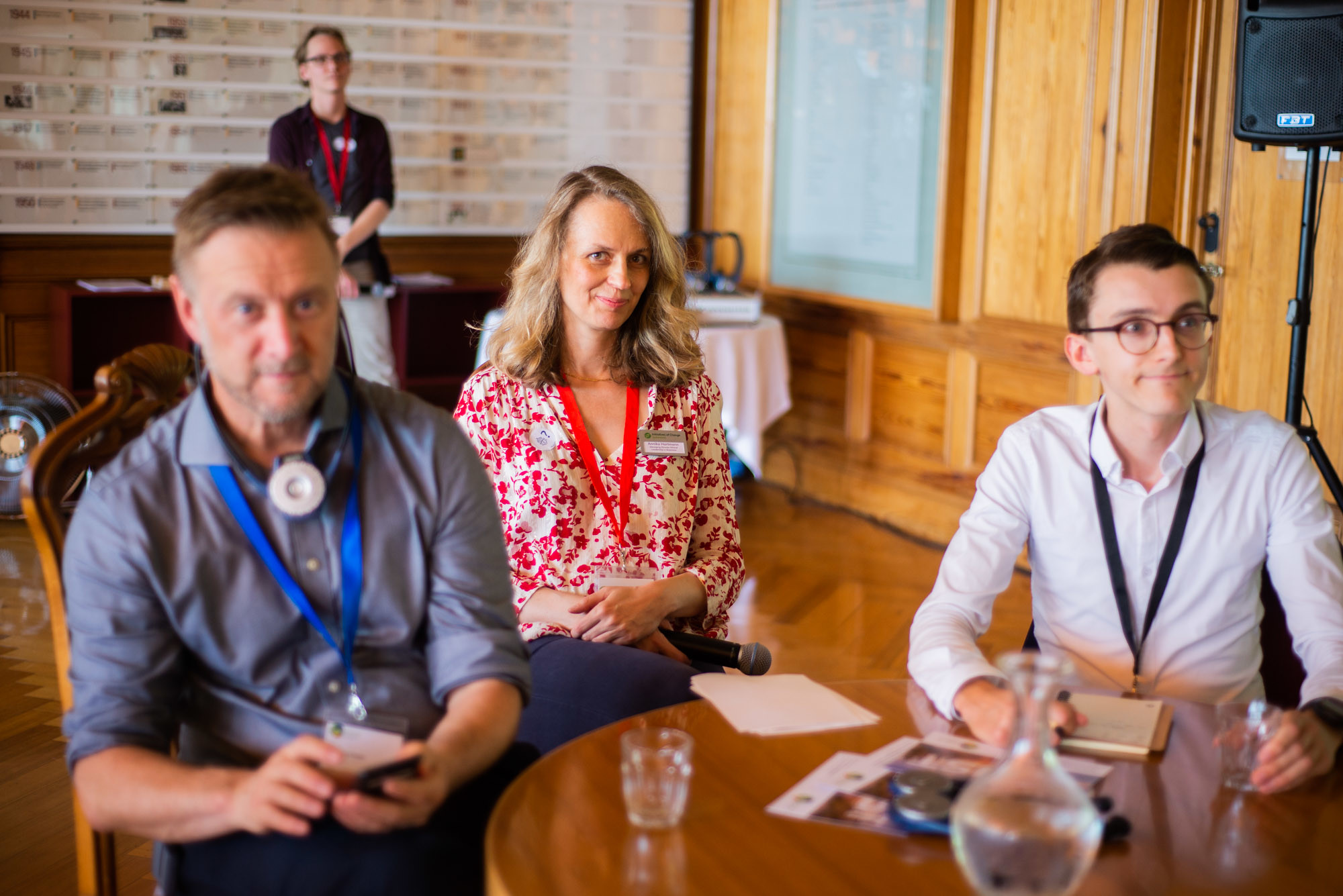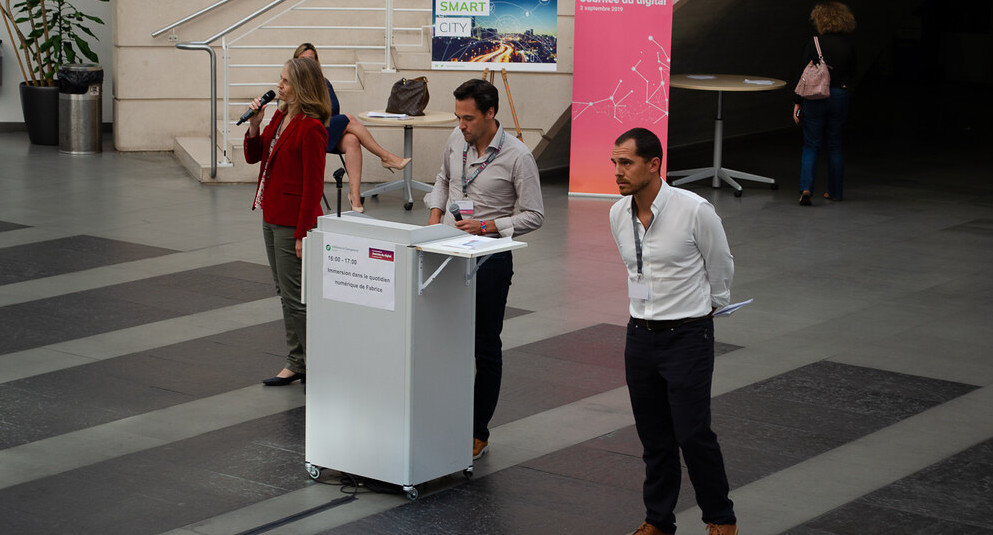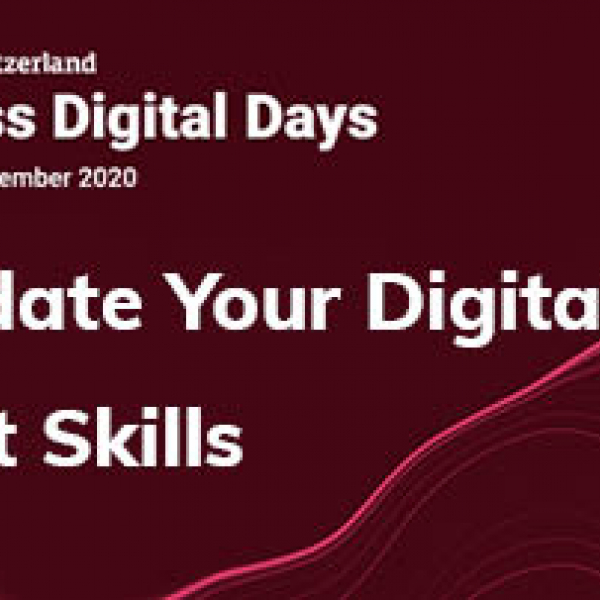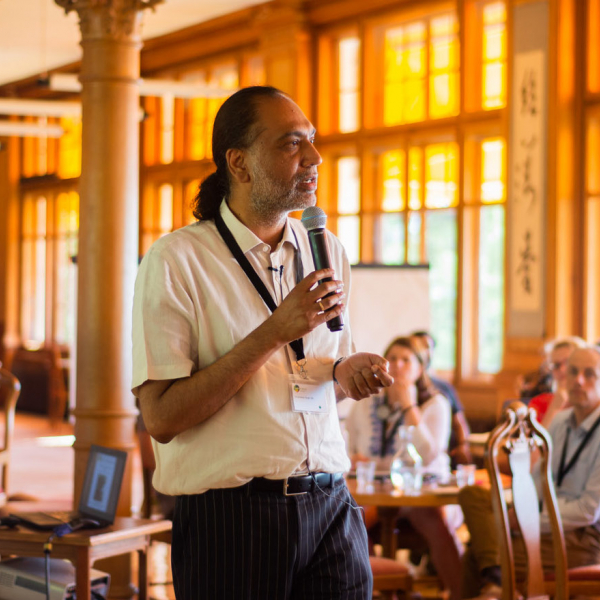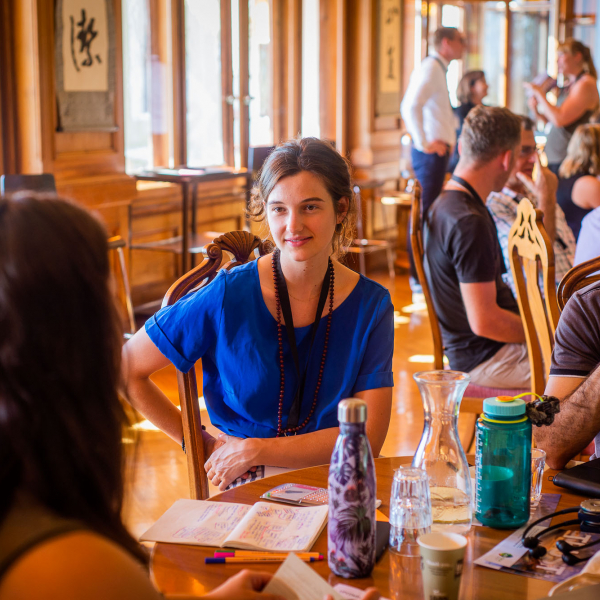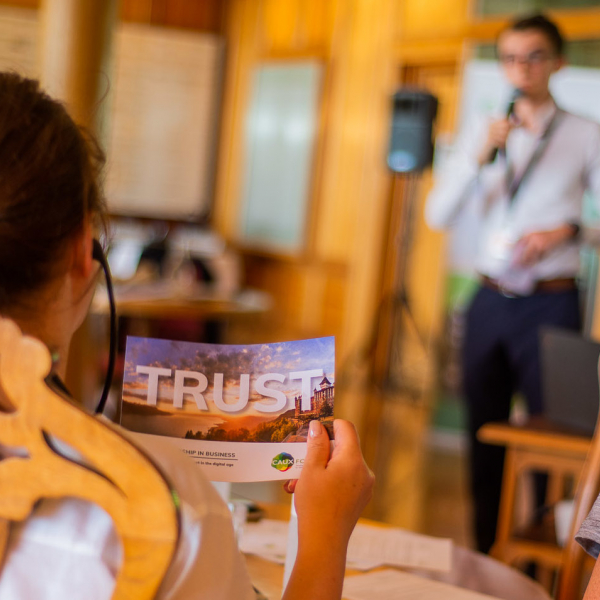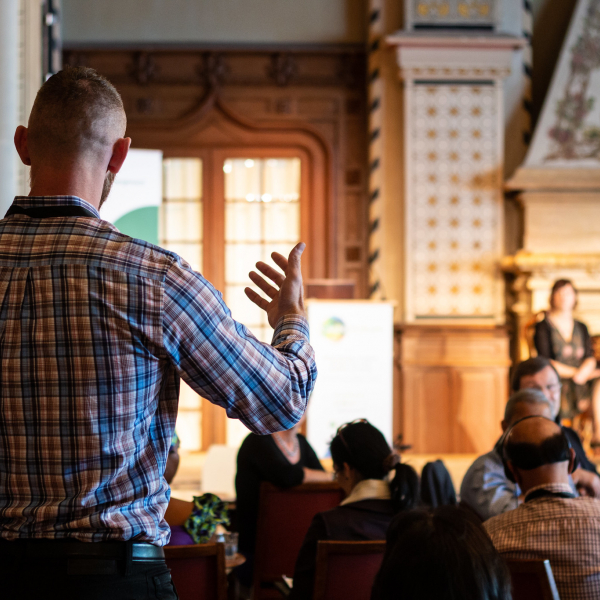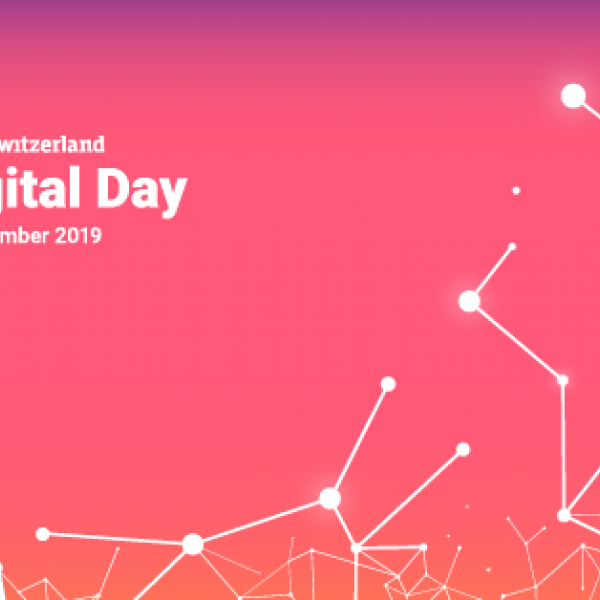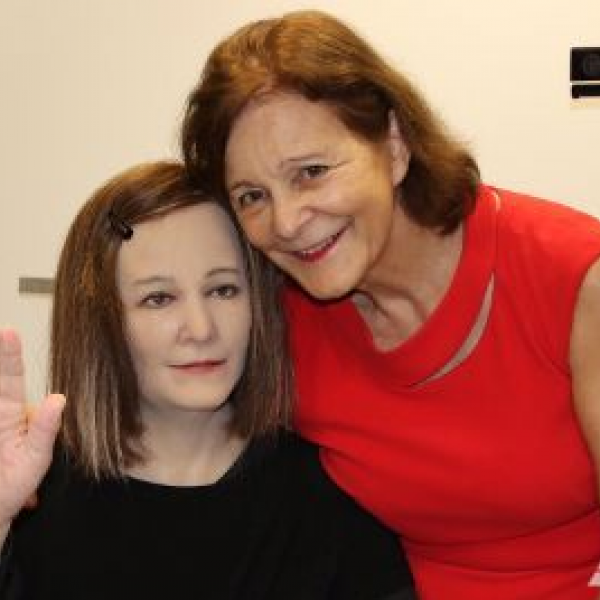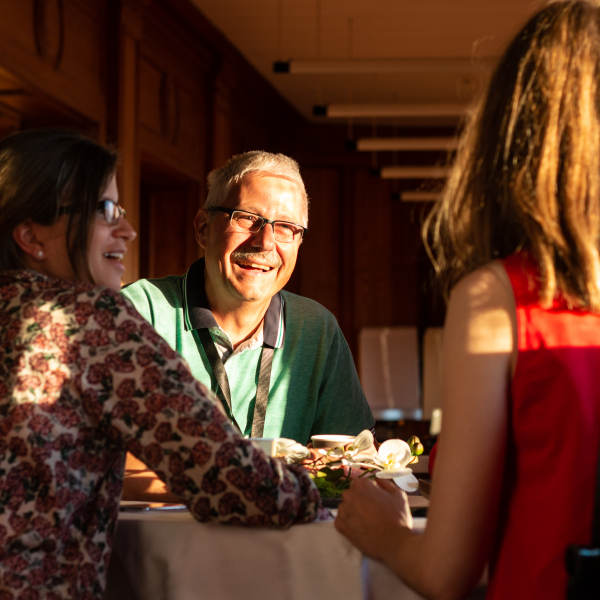
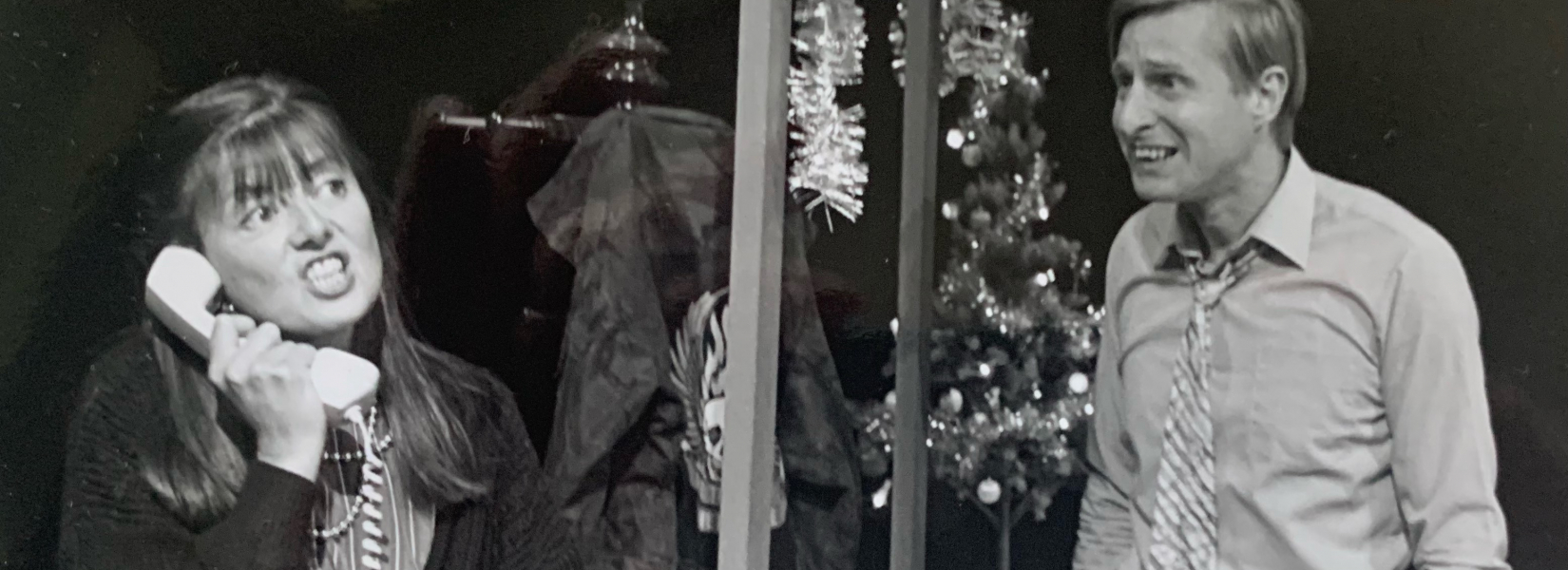
1974: Vendela Tyndale-Biscoe – ‘A life you could never dream of’
By Mary Lean
07/07/2021
When she came to Caux in December 1974, Swedish actress Vendela Tyndale-Biscoe (then Lofgren) had everything she had ever thought she wanted. That year, at the age of 24, she had been given a permanent contract with one of the biggest theatres in Sweden. But she felt ‘dead inside’.

Vendela had made her performing debut as a 12-year-old, four years after her father died from a hereditary kidney disease. ‘I experienced the sweetness of making people laugh and applaud for more,’ she said. ‘I knew that this was what I wanted to do.’
I experienced the sweetness of making people laugh and applaud for more. I knew that this was what I wanted to do.
She started singing her own songs in rock clubs. But she didn’t tell her mother about the drink, drugs and destructive relationships into which she was drawn ever deeper as she finished school and moved on to drama college.

By Christmas 1974, she had quit drugs after a religious experience which turned her back towards the Christian faith of her childhood. She had even – on an earlier visit to Caux in 1971 – broken down the ‘glass wall’ between her and her mother by telling her about the drugs. Her mother had taken the bombshell with unexpected calm. The experience had left Vendela ‘feeling as free as a bird’.
In spite of all this, three years on she felt her life was not worth living. Her work was exhausting and her latest boyfriend was becoming an alcoholic. ‘I thought I might as well die.’ She went back to Caux, in search of ‘the only hope I had seen in life so far’.
On arrival, she was asked to take a part in a play – and declined because she wanted to go ski-ing. When she found the ski lift wasn’t working, she relented.

She was the only woman in the cast and the rehearsals were an eye-opener. ‘I felt that the men I was working with loved me just for being me’. There was no need to flirt. She realized that this was the sort of life she wanted.
‘I decided to stop trying to make myself more popular, stop thinking that I had to sleep with every boyfriend, stop drinking alcohol and become open with everyone, especially in the theatre world, about what I had decided. It was like saying goodbye to my career.’
She returned to work ‘a new person’ and found, to her surprise, that her colleagues respected her values, because she was living them herself, rather than lecturing them. The next summer she gave up her contract so as to work with Initiatives of Change (IofC).
She found, to her surprise, that her colleagues respected her values, because she was living them herself, rather than lecturing them.
The first year was tough. She started off in Britain, where she fell deep into depression – caused, she believed, by mercury poisoning from a dental operation. When she returned to Sweden four months later, she had a minor nervous breakdown. She found her feet again in Canada, and there faced the decision of whether to return to her acting career.
‘I shut myself into my room for a “talk” with God,’ she said. She had a clear thought: ‘if you give the theatre to me, even risking to never do theatre again, I promise to give you a life that you could never dream of’. When she was offered a part by her theatre in Sweden, she declined.

Over the next decades, this decision took her to Africa, India, Russia and other parts of Europe, often acting in plays and reviews which challenged the audience to rethink their lives and values. In 1980, she married Philip Tyndale-Biscoe, an English actor who had been in the cast at Caux in 1974. After 11 years in the UK and travelling internationally, they settled in Sweden in 1992.
Philip and Vendela performed together many times in Caux and elsewhere, including in two plays of their own – Let’s Talk Turkey (‘about three Christmases, two people and one bookcase’) and Stalling Between Two Fools (‘a pocket review which we could perform anywhere’).
Not long after throwing in her lot with IofC, Vendela discovered that she had inherited the kidney disease her father died of. She decided, ‘From now on, I will live every day as if it is my last.’ She died 39 years later, in 2018.
You can read more on Vendela here.

________________________________________________________________________________________
Vendela performing "I've dropped the charge", 2013
________________________________________________________________________________________
This story is part of our series 75 Years of Stories about individuals who found new direction and inspiration through Caux, one for each year from 1946 to 2021. If you know a story appropriate for this series, please do pass on your ideas by email to John Bond or Yara Zhgeib. If you would like to know more about the early years of Initiatives of Change and the conference centre in Caux please click here and visit the platform For A New World.
- Photo portrait: For a New World
- Photo Nordic Revue: Tone Nelson
- All other photos: Philip Tyndale-Biscoe
- Photo top: Performing with Philip in 'Stalling between two fools', 1996-97
related stories

75 Years of Stories: Meet the team!
When we launched the 75 Years of Stories series in February 2021 about 75 years of encounters at the Initiatives of Change conference centre in Caux, we had no idea what an adventure we had embarked o...

2021: Initiatives of Change Switzerland – Opening Caux’s doors to a new chapter
As our series of 75 stories for 75 years of the Initiatives of Change conference centre in Caux draws to an end, the President of Initiatives of Change Switzerland, Christine Beerli, and its two Co-Di...

2020: Aad Burger – Struck by a virus
In 2020, the Caux Forum went online in response to the pandemic. Its organizers found that this made Caux accessible to people all over the world who could not have taken part in normal circumstances....

2019: Marc Isserles – ‘We must save the children’
During World War II, the Caux Palace (later the Initiatives of Change conference centre in Switerland) provided a refuge for Jews fleeing the Shoah. Over the years, some of them – or their descendants...

2018: Wael Boubaker – ‘Climate change should be top top top priority’
When Tunisian economics graduate Wael Boubaker joined the Caux Peace and Leadership Programme (CPLP) in 2018, he expected a conference which would look good on his CV, and some beautiful scenery. Inst...

2017: Tanaka Mhunduru – A home for the world
Tanaka Mhunduru from Zimbabwe is one of the organizers of the Caux Peace and Leadership Programme (CPLP), a one-month programme for young people from around the world. He first took part in 2017....

2016: Diana Damsa – ‘It made me feel I counted’
The Winter Gathering of 2016 was a special experience for Diana Damsa – not just because she experienced Caux in winter, but also because, for the first time in eight years, she had no responsibilitie...
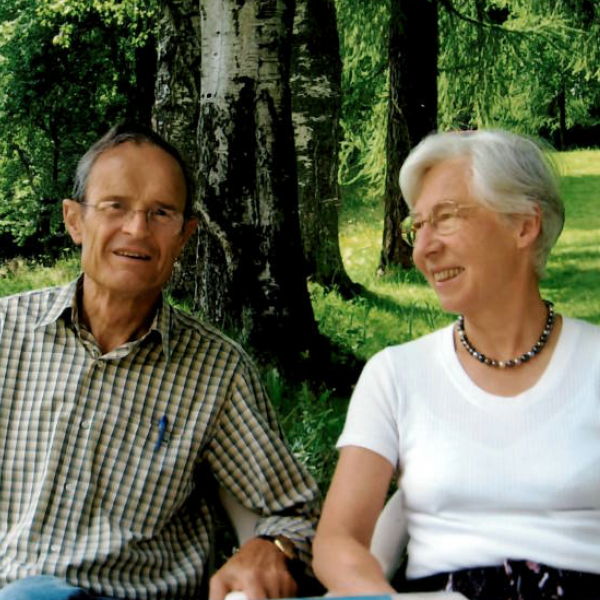
2015: Lisbeth Lasserre – ‘The richness in art’
Lisbeth Lasserre came from Winterthur, where her grandparents, Hedy and Arthur Hahnloser, had built up a private collection of art at their home, Villa Flora. Amongst their artist friends were Bonnard...
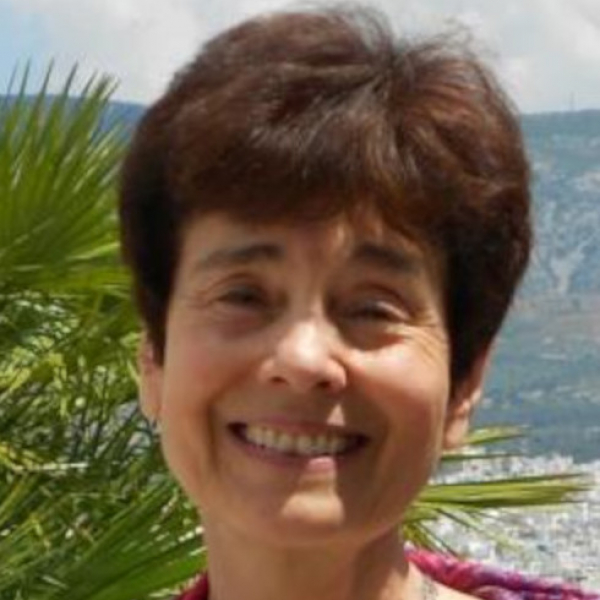
2014: Catherine Guisan – Europe’s Unfinished Business
Catherine Guisan is Visiting Associate Professor at the University of Minnesota, USA. She has written two books on the ethical foundations of European integration. In 2014 she spoke at Caux’s first se...
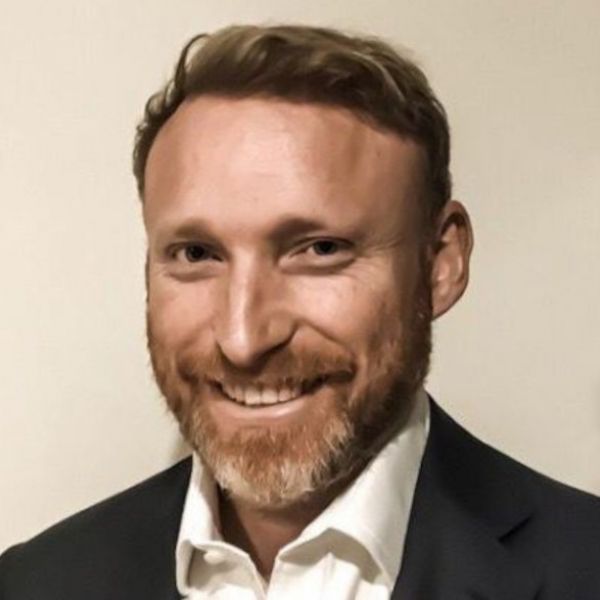
2013: Tom Duncan – Restoring a healthy planet
2013 saw the first full-length Caux Dialogues on Land and Security (CDLS). These events, which took place at the Caux Conference and Seminar Centre, focus on the links between sustainable land managem...
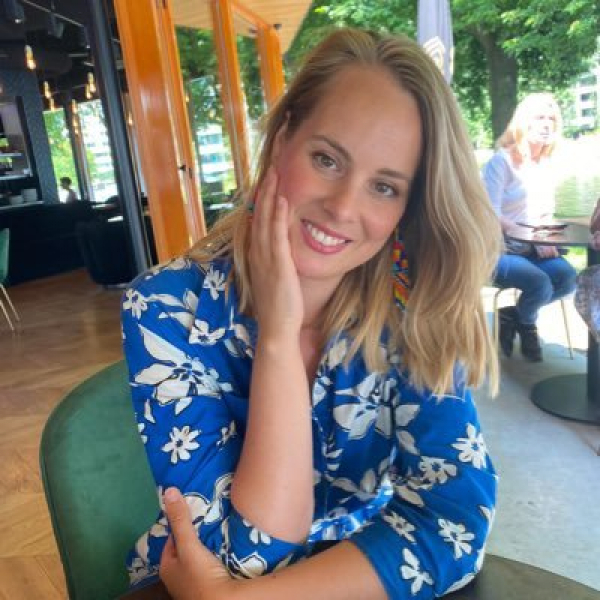
2012: Merel Rumping – Going out on a limb
When Merel Rumping from the Netherlands first visited Caux in 2012, she had a goal in mind – ‘to explore how I could contribute to a more just world through my professional activities’....
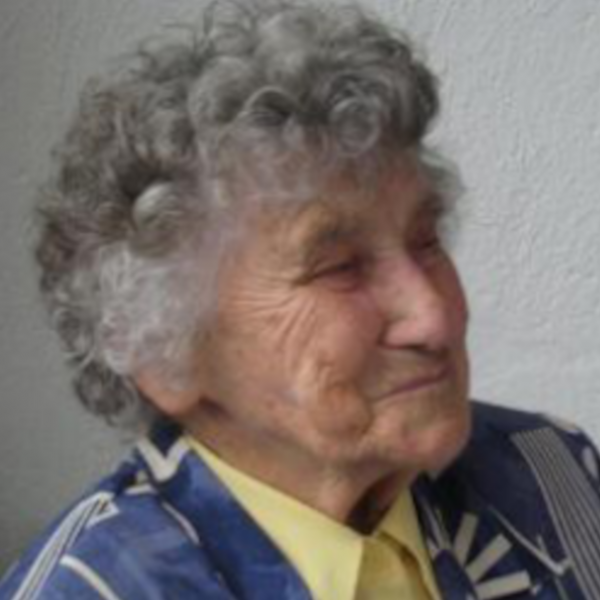
2011: Lucette Schneider – Choices which make the magic of Caux
For many years, Lucette Schneider from Switzerland organized the team which gathered in the early mornings to wash, peel and chop vegetables for the kitchens of the Caux conference centre. ...
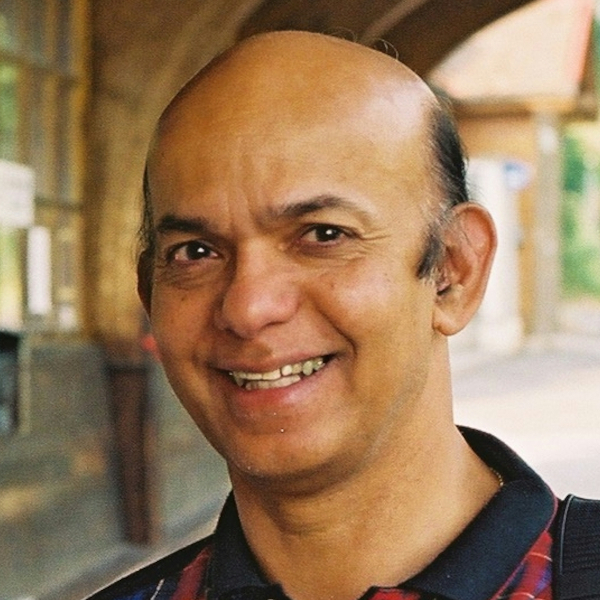
2010: Mohan Bhagwandas – Addressing the crisis of integrity
Mohan Bhagwandas is all too aware of his carbon footprint. In the 13 years from 2006 to 2019, he flew 17 times from his home city of Melbourne, Australia, to Switzerland to take part in the Caux confe...

2009: Rajmohan Gandhi – Bridges between India and Pakistan
25 distinguished Indians and Pakistanis came to Caux in 2009 with the aim of building bridges between their countries. The man who initiated the gathering was Rajmohan Gandhi, a grandson of Mahatma Ga...

2008: Learning to be a Peacemaker – ‘An eye-opener to the world’
2008 saw the launch of an unusual course on Islam’s approach to peacemaking for young Muslims and non-Muslims, devised by Imam Ajmal Masroor from the UK. The course’s coordinator, Peter Riddell, descr...


1973: Kim Beazley – ‘Essence of intelligent statesmanship’
By John Bond
05/07/2021
In 1973 Australia’s national elections brought a Labor Government to power, and Kim Beazley – a familiar face at Caux – was appointed Minister for Education. Beazley was determined to ensure that every Australian child received the best possible education, and launched a transformation in Australian schools.

The schools were either run by churches or by the state, and there was immense resentment at the inequities in their state funding. Under Beazley’s leadership, the Department of Education started funding all schools according to their need, giving the largest grants to the poorest schools.
When the Australian National University awarded an honorary doctorate to Beazley in 1976, the citation stated that his action had ‘healed an ulcer that has festered in our society for close to 200 years. Sectarian bitterness, which has focused on schools and their funding, was dealt a death blow by needs-based funding.’
Beazley regarded his first visit to Caux in 1953 as fundamental to his political approach. At Caux he had encountered the idea of taking time alone to seek God’s guidance, having ‘nothing to prove, nothing to justify and nothing to gain for yourself’.

When he did, he realized that he had ‘formed the habit of not being absolutely accurate in political statements’. As he told the conference, ‘I analyzed the government’s mistakes, but never their virtues. This is one of the most mischievous forms of lying in politics. I have decided to concern myself daily with the challenge of how to live out God’s will, to turn the searchlight of absolute honesty on to my motives, and to try to see the world with the clarity of absolute purity... and absolute love.’
His approach to people – his eyes, his voice – were different. (...) His new approach showed me the possibilities of change.
A first step for him was ‘sitting down and writing a letter of honesty to my wife’. And when he returned home she found that ‘his approach to people – his eyes, his voice – were different’. Life was not easy for her with three children and a husband away in Parliament on the other side of Australia for long periods. She said: ‘I had seen many marriage breakups in political life. His new approach showed me the possibilities of change.’

Some of his parliamentary colleagues were hostile. ‘Facing the prospect of political destruction at this moment is young Kim Beazley,’ wrote a prominent political columnist later that year. ‘Powerful, office-hungry individuals fear that his idealism and his current determination to pursue the truth, whatever the price, could cost the Labor Party the next election. The story they are assiduously and effectively peddling is, “Beazley has lost his balance.” So the word has gone out, “Destroy him”.’
They did not destroy him. He was returned to Parliament at every election for 32 years. When he retired, the Melbourne Herald wrote that he was ‘beyond any dispute one of the best Members of Parliament Australia has ever had’.

In particular, he had played a significant role in advancing Aboriginal land rights, voting rights, health care and education in 22 Aboriginal languages. The ANU doctoral citation stated, ‘It has become popular over the last years to recognize the injustices done to Aboriginal people. But over the last half-century this was far from popular. In that time few people have done as much, and none have done more, than Kim Beazley has to bring about that change in attitude.’ When he died in 2007, three former Prime Ministers attended his funeral.
Beazley summed up his approach: ‘The thoughts of God, given primacy in the life of a person, bring to the innermost motives the virtue of mercy, and with it the cure for hatred that can turn the tide of history. This is the essence of intelligent statesmanship.’
Watch a short film about Kim Beazley from our archives.
Watch an interview with Kim Beazley on his ideas and visons for the future, 1981 (Music: David Mills)
________________________________________________________________________________
This story is part of our series 75 Years of Stories about individuals who found new direction and inspiration through Caux, one for each year from 1946 to 2021. If you know a story appropriate for this series, please do pass on your ideas by email to John Bond or Yara Zhgeib. If you would like to know more about the early years of Initiatives of Change and the conference centre in Caux please click here and visit the platform For A New World.
- Photos (except photo Kim and Betty Beazley): Initiatives of Change
- Photo Kim and Betty Beazley: Danielle Maillefer
- Short film Kim Beazley: Initiatives of Change
- Interview As We Want the World to Live: Interview with Dr Kim Beazley: Initiatives of Change
related stories

75 Years of Stories: Meet the team!
When we launched the 75 Years of Stories series in February 2021 about 75 years of encounters at the Initiatives of Change conference centre in Caux, we had no idea what an adventure we had embarked o...

2021: Initiatives of Change Switzerland – Opening Caux’s doors to a new chapter
As our series of 75 stories for 75 years of the Initiatives of Change conference centre in Caux draws to an end, the President of Initiatives of Change Switzerland, Christine Beerli, and its two Co-Di...

2020: Aad Burger – Struck by a virus
In 2020, the Caux Forum went online in response to the pandemic. Its organizers found that this made Caux accessible to people all over the world who could not have taken part in normal circumstances....

2019: Marc Isserles – ‘We must save the children’
During World War II, the Caux Palace (later the Initiatives of Change conference centre in Switerland) provided a refuge for Jews fleeing the Shoah. Over the years, some of them – or their descendants...

2018: Wael Boubaker – ‘Climate change should be top top top priority’
When Tunisian economics graduate Wael Boubaker joined the Caux Peace and Leadership Programme (CPLP) in 2018, he expected a conference which would look good on his CV, and some beautiful scenery. Inst...

2017: Tanaka Mhunduru – A home for the world
Tanaka Mhunduru from Zimbabwe is one of the organizers of the Caux Peace and Leadership Programme (CPLP), a one-month programme for young people from around the world. He first took part in 2017....

2016: Diana Damsa – ‘It made me feel I counted’
The Winter Gathering of 2016 was a special experience for Diana Damsa – not just because she experienced Caux in winter, but also because, for the first time in eight years, she had no responsibilitie...

2015: Lisbeth Lasserre – ‘The richness in art’
Lisbeth Lasserre came from Winterthur, where her grandparents, Hedy and Arthur Hahnloser, had built up a private collection of art at their home, Villa Flora. Amongst their artist friends were Bonnard...

2014: Catherine Guisan – Europe’s Unfinished Business
Catherine Guisan is Visiting Associate Professor at the University of Minnesota, USA. She has written two books on the ethical foundations of European integration. In 2014 she spoke at Caux’s first se...

2013: Tom Duncan – Restoring a healthy planet
2013 saw the first full-length Caux Dialogues on Land and Security (CDLS). These events, which took place at the Caux Conference and Seminar Centre, focus on the links between sustainable land managem...

2012: Merel Rumping – Going out on a limb
When Merel Rumping from the Netherlands first visited Caux in 2012, she had a goal in mind – ‘to explore how I could contribute to a more just world through my professional activities’....

2011: Lucette Schneider – Choices which make the magic of Caux
For many years, Lucette Schneider from Switzerland organized the team which gathered in the early mornings to wash, peel and chop vegetables for the kitchens of the Caux conference centre. ...

2010: Mohan Bhagwandas – Addressing the crisis of integrity
Mohan Bhagwandas is all too aware of his carbon footprint. In the 13 years from 2006 to 2019, he flew 17 times from his home city of Melbourne, Australia, to Switzerland to take part in the Caux confe...

2009: Rajmohan Gandhi – Bridges between India and Pakistan
25 distinguished Indians and Pakistanis came to Caux in 2009 with the aim of building bridges between their countries. The man who initiated the gathering was Rajmohan Gandhi, a grandson of Mahatma Ga...

2008: Learning to be a Peacemaker – ‘An eye-opener to the world’
2008 saw the launch of an unusual course on Islam’s approach to peacemaking for young Muslims and non-Muslims, devised by Imam Ajmal Masroor from the UK. The course’s coordinator, Peter Riddell, descr...
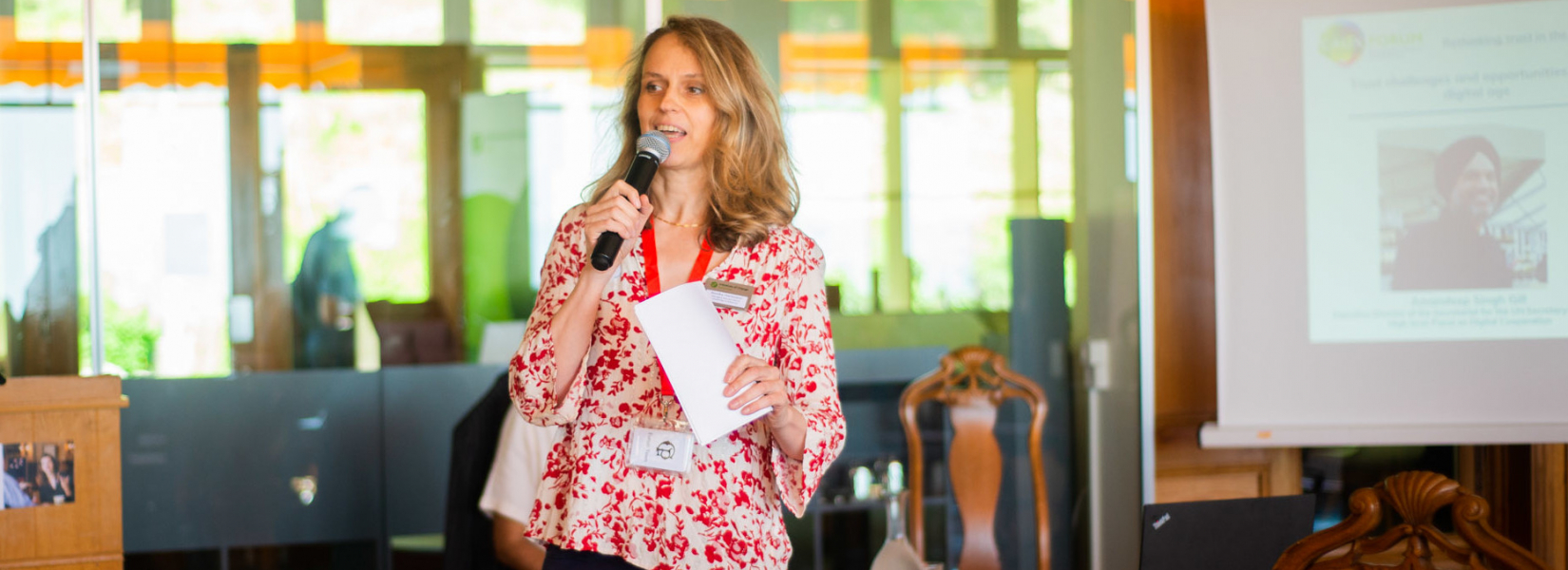
Creating a network and strengthening resilience in business
A conversation with Annika Hartmann de Meuron
04/07/2021
Annika, looking back, what six words would you use to characterize your four years with ELB?
- Start-up: we started from scratch, building business connections in Switzerland
- Bold: we explored new ethical frontiers, such as digital ethics and trust
- Innovative: we tried new ways of raising awareness and triggering change
- Impactful: all steps, small and big, count in the journey of change
- Intense: humans, values, ethics, leadership are intense topics!
- Enriching: encounters with people from varied perspectives
What were ELB’s main objectives and pillars when it was created?
ELB’s main objective was to empower business leaders to lead ethically in an ever-changing world. We developed a space for exchange on experiences and good business leadership practices, with which to navigate the 21st century. We addressed such issues as digital ethics, trust and the risks of digital transformation; life-long learning as a tool for change; building resilience on a personal and organizational level; and, of course, strengthening moral leadership.
How did the global pandemic impact ELB and its approach to business ?
As a response to the pandemic, we launched the monthly ELB Talks. In these a group of business leaders from around the world shared how the COVID-19 pandemic had impacted their business and what solutions they had developed.
In summer 2020, we launched the first hybrid Caux Forum – conversations with speakers on stage in the Caux Palace and speakers online. It was a fantastic experience, as it enabled us to be very inclusive: we had a wider spread of participation, both geographically and socially.
In addition, at the end of 2020, we run an online workshop on ‘Digital softskills’ with our partner organization Digital Switzerland. We also offered a Masterclass on ‘How to survive a crisis’ in partnership with e-space, during the entrepreneurship week organized by the University of Geneva.
What role did the ELB Talks play for leaders ?
Participants told me that the ELB Talks were not only an opportunity for mutual sharing and learning, but also helped to strengthen their resilience. They made them part of a wider community which not only offered a variety of perspectives but also spread a sense of optimism.
Can you give me some examples of the topics you covered in the ELB Talks?
The ELB Talks touched on a variety of topics. We looked at how the crisis impacted small and medium-sized enterprises (SMEs) and such business sectors as aviation, sustainable investment and fashion. As the pandemic accelerated digitalization, we also touched on the topic of digital trust, ethics and the role of cybersecurity. Ethical leadership is the heart of ELB so we had conversations on the evolution of leadership in times of crisis, how to lead in a remote-working environment and how to strengthen one’s personal resilience.
What were your personal highlights of these four years?
In my role as Managing Director of ELB, I not only organized conferences and events, but also developed a local business network, partnerships and an amazing online team of volunteers. It was a privilege to meet and collaborate with people from diverse backgrounds, including the IofC Network. Every single person I met during my four years was my personal highlight!
What is your hope and vision for the business leaders of tomorrow ?
To formulate a hope and vision for future business leaders, we need to understand how the pandemic has influenced leadership so far. The COVID-19 crisis surprised every one of us and is a major lesson in humility. In recent leadership discourses, many have said that the recovery from the pandemic must lead to a more just and resilient economy and society. To achieve that, business leaders need to be guided by values beyond profit and to build trust through ethically sound leadership.
My vision for the business leaders of tomorrow is that the shift to a more values-driven leadership will be confirmed. In times of great uncertainty, nobody really knows the right path, so we need leaders who are capable of listening to their stakeholders, open to learning and who put moral behaviour first.
I believe that IofC has an important role to play in making this shift happen, by raising awareness of some simple – but not so easy – leadership habits: practising daily quiet time and journaling for self-inquiry, adopting a ‘service leadership’ mindset and being an inspiring role model.
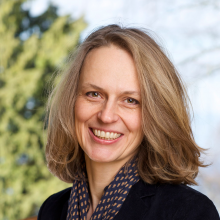
Annika Hartmann de Meuron was in charge of Initiatives of Change Switzerland’s Ethical Leadership in Business and Trustbuilding programme from 2018 to 2021 which aimed to contribute to a better future by offering international business representatives a safe space for sharing leadership experiences, personal stories and expertise. In addition, her work also focused on the human impact of digitalization and trustbuilding in the digital age. Annika Hartmann de Meuron has an MA in International Relations and a MA in International History and Politics. She worked for many years as a Corporate Social Responsibility Manager for the Philias Foundation, prior to which she worked in the communications sector at the Global Humanitarian Forum and the PR-Agency Rochat & Partners.
related stories
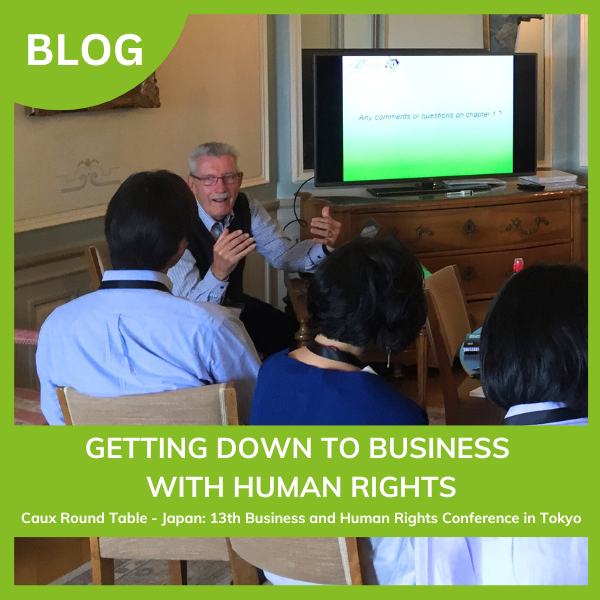
Getting down to business with human rights
On 25 October 2024, the Caux Round Table (CRT) - Japan hosted the 13th Business and Human Rights Conference in Tokyo with 225 corporate leaders, executives and experts from several Asian countries par...
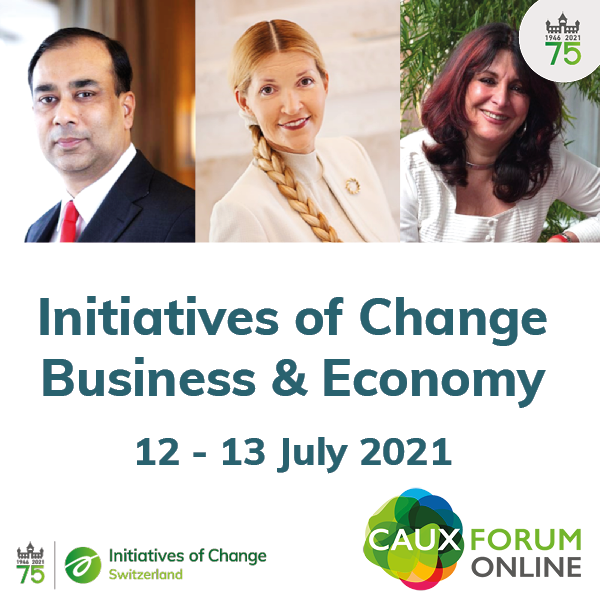
Sustainable businesses needs purpose beyond profit
Corporations and industries need a purpose beyond profit, says Sunil Mathur, the Managing Director and Chief Executive of Siemens in India and South Asia. ‘Companies’ purposes are critical,’ he explai...
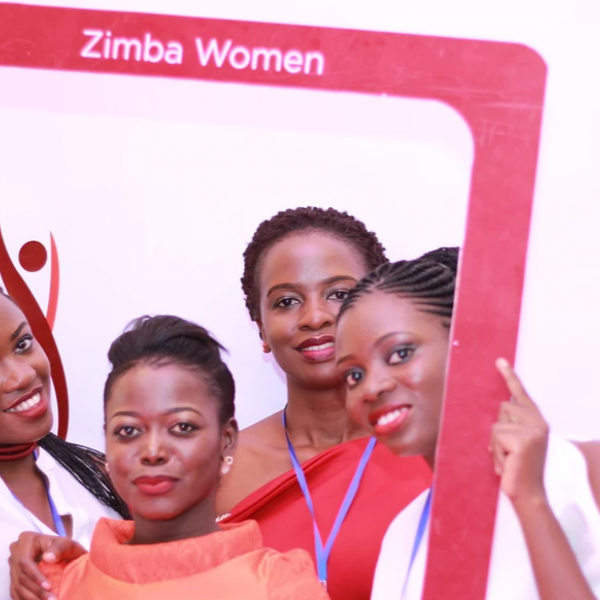
Empowering women to enter the market
The Co-founder of Zimba Women, Peace Kuteesa, is passionate about providing women with the tools and resources to participate in their economies and develop their communities. She spoke at last year's...

How to make video calls more human and successful
A year ago, video conferencing became the new normal in our work lives. It was the safest place for us to meet and collaborate. It seemed so easy: just invite someone to join the call and continue as...
What does it take to be an entrepreneur?
Global Entrepreneurship Week in November 2020 included e-space, a three-day hybrid event, which offered a range of master classes and conferences. Rainer Gude, Co-Director General of Initiatives of Ch...
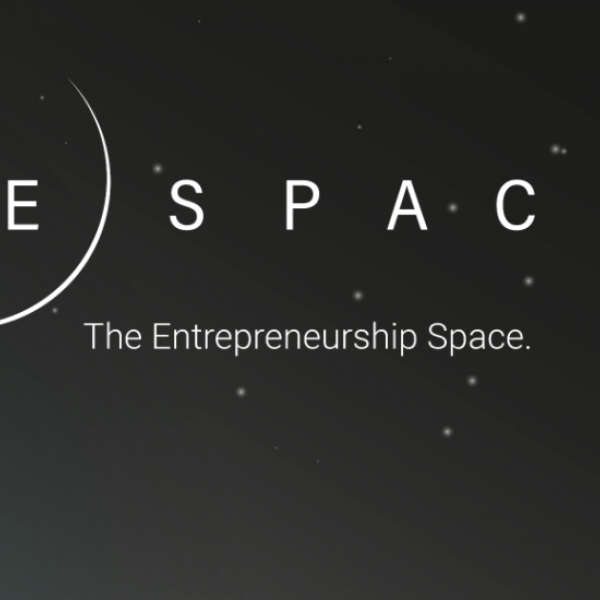
Tools for surviving a crisis
During Global Entrepreneurship Week in November 2020, Initiatives of Change Switzerland took part in e-space, a three-day hybrid event, which offered a range of master classes and conferences. Annika ...
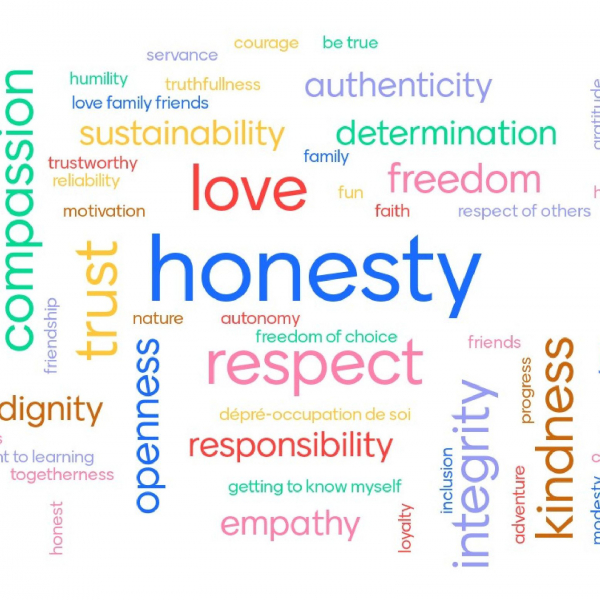
Swiss Digital Days 2020 - Online Workshop: Update your digital soft skills
Initiatives of Change Switzerland held a one-hour online workshop on 3 November 2020 on the topic of soft digital skills....
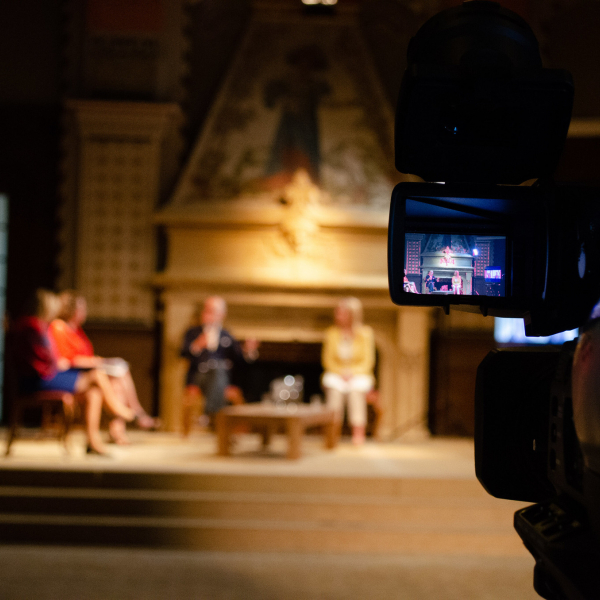
Ethical Leadership in Business – Leadership for a resilient economy
The Ethical Leadership in Business conference, on 25 and 26 June 2020, kicked off the first Caux Forum Online. It offered a diversified experience with panels livestreamed from the Caux Palace, networ...
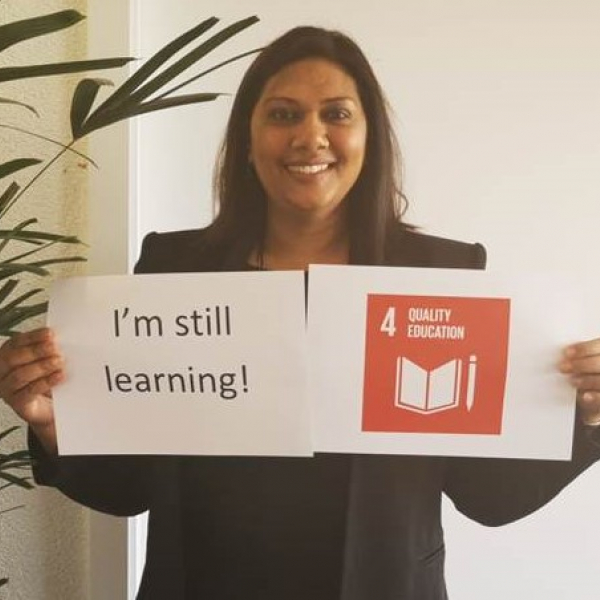
My Learning Story: Nazrene Mannie
Nazrene Mannie is the Executive Director of the Global Apprenticeship Network (GAN) and talks about her learning experiences. Our interview series 'My Learning Story’ hopes to become a global learning...
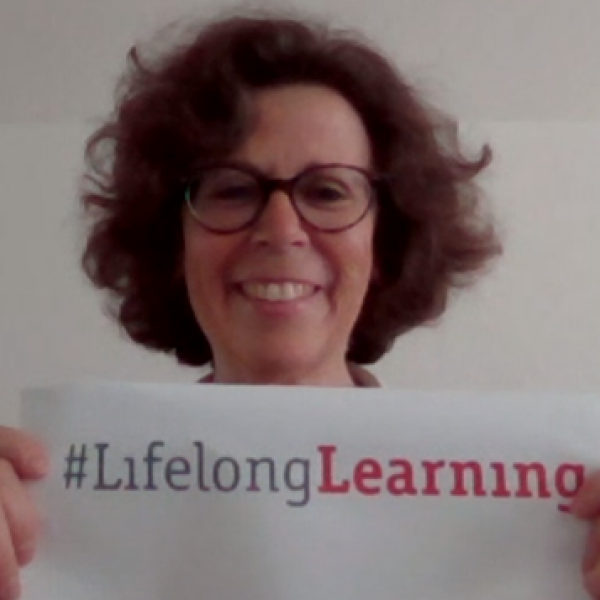
My Learning Story: Danièle Castle
Our interview series ‘My Learning Story’ hopes to become a global learning experience, connecting people around the world as they share their stories of what we all do every day: learning to build a b...
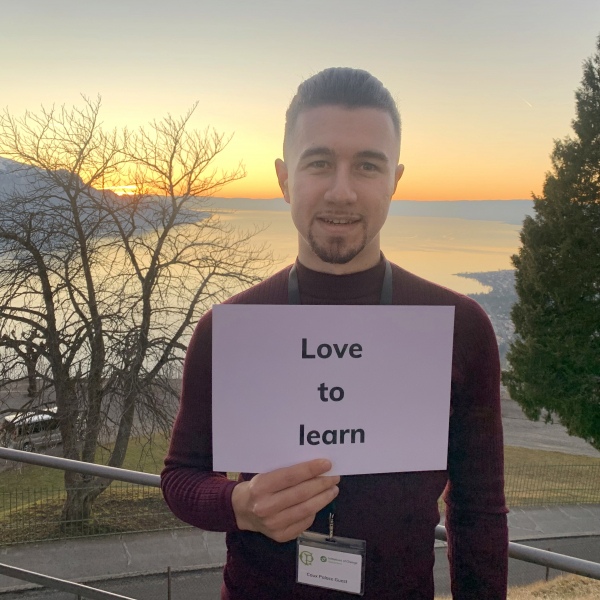
My Learning Story: Mulham Soufi
Mulham Soufi is a student of computer programming at Ecole 42 in Lyon. This university works differently because the students all learn from each other. What is its strength? Our interview series ‘My ...
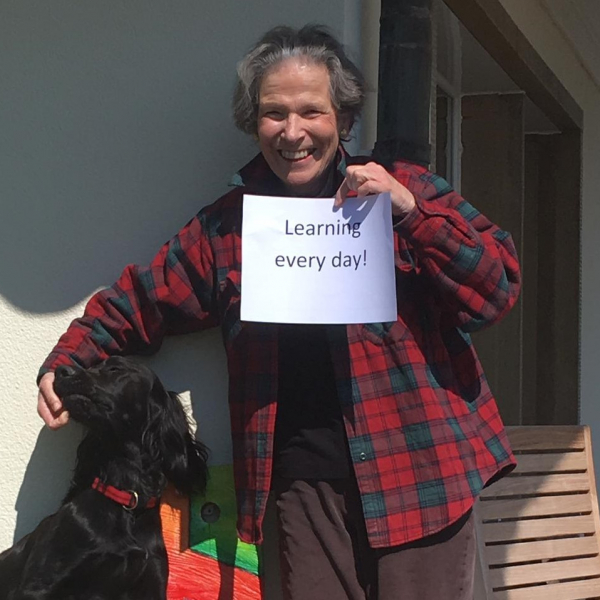
My Learning Story: Christine Beerli
Discover our interview with Christine Beerli, President of the IofC Switzerland foundation, as part of our series ‘My Learning Story’....
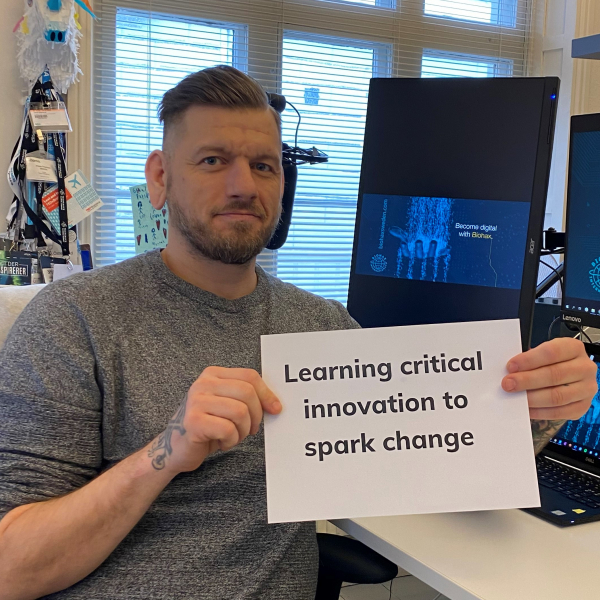
My Learning Story: Jowan Oesterlund
Discover our interview with Jowan Oesterlund, Founder & CEO at Biohax International, as part of our series ‘My Learning Story’....
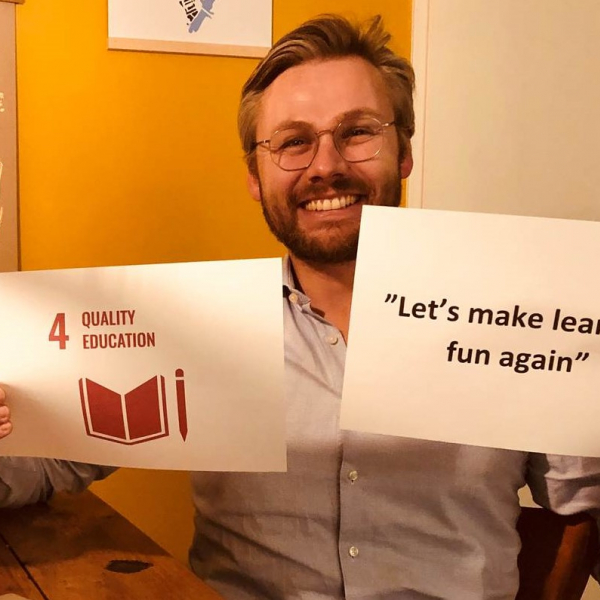
My Learning Story: Bram Jonker
‘My Learning Story’ hopes to become a global learning experience, connecting people around the world as they share their stories of what we all do every day: learning to build a brighter future. Disco...
related events

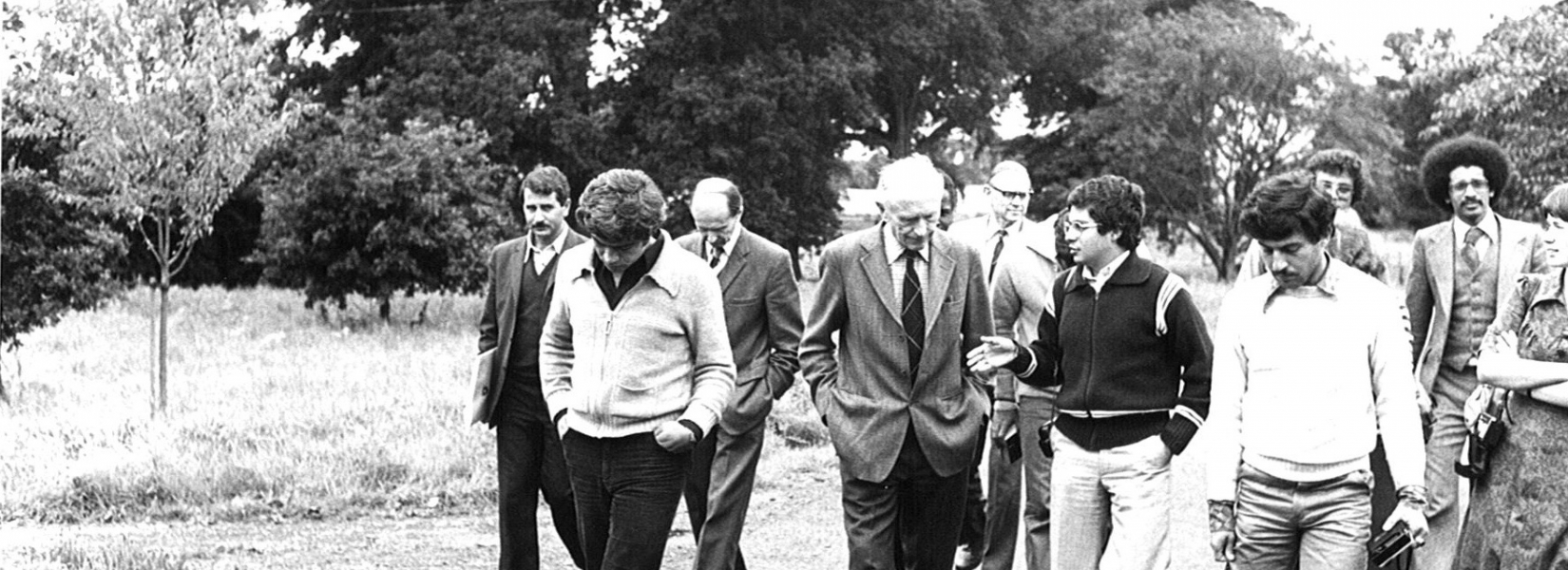
1972: Nagia Abdelmogney Said: ‘Language of the heart’
By Mary Lean
01/07/2021
In 1972, three Egyptian students arrived in Caux. Their visit sparked a remarkable series of exchanges in which more than 200 Arab and British students took part over the next decades.
One of the three, Nagia Abdelmogney Said, had taken part in a youth leadership course at Caux in 1968. She had been amazed at the depth of communication between people of different cultures and nationalities. ‘I felt that the common language was the language of the heart,’ she says.

When she returned to Caux four years later, she had a ‘heavy heart’ as she felt that a mistake had distorted her final academic results. ‘I had filed a complaint, but was not satisfied with the response. It meant that I had to repeat the whole year.’
The morning after she arrived, Nagia had a ‘quiet time’ with her room-mate, a Christian from Malta. ‘I was amazed that we both had similar thoughts even though we came from different religious backgrounds. I had remembered a verse from the Holy Qu’ran and she had recalled one from the Bible: both conveyed the same message that “all things work together for those who love God”.’
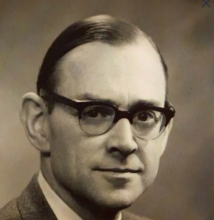
Nagia and her companions returned to Cairo with a vision for a bridge-building exchange between Egyptian and European students, based on values shared by Islam and Christianity. Their request to the Ministry of Youth was passed on to Mohsen Hussein, then working in Egypt’s Supreme Council for Youth and Sports. ‘Their eyes were glowing with enthusiasm,’ he remembered. He made arrangements for five British students to visit Egypt in April 1973 as guests of the Egyptian Government.
I was amazed that we both had similar thoughts even though we came from different religious backgrounds.
At the British end, the students’ vision had been taken up by Bill Conner, a friend of Nagia’s father, Abdel Mogney Said, then Egyptian Under-Secretary for Labour. Bill had commanded a tank at the battle of El-Alamein in Egypt in 1942. ‘I remember thinking, if I do get back home, I must find something dealing with the root causes of what’s wrong in the world, because clearly this war wasn’t going to do it,’ he wrote later.
Bill and other Moral Re-Armament (MRA, now Initiatives of Change) associates set up a charity, the British-Arab University Association (later known as British-Arab Exchanges – BAX) to coordinate the exchanges. Its aim was to ‘establish firm links of trust and respect between future decision-makers of the Arab countries and the West’.

I was one of the British students who visited Egypt in 1973. We were bowled over by the warmth of our reception: particularly from people who had suffered under British rule. Abdel Mogney Said had been interned twice, yet welcomed us like family.
We were challenged by the generosity and inclusivity of our hosts, and took what we called the ‘Egyptian spirit’ back to our universities. The experience opened our eyes to the wider world, and we all ended up engaged in development, human rights or trust-building in one way or another.

That August, we hosted a return visit of 15 Egyptian students, first at Caux and then in Britain. They came from five universities and had been selected as ‘ideal students’. They were accompanied by Mohsen Hussein and his wife, Lamia, who was Palestinian, and by Nagia. Further exchanges with Egypt followed up to 1979.
BAX went on to sponsor some 40 exchange visits with Sudan, Jordan, Lebanon, and the Palestinian Occupied Territories. In the years before it wound up in 2019, BAX worked closely with the British Council on youth projects. These included welcoming pan-Arab groups from the Levant and North Africa, and a series of leadership training programmes via live video conference between London and Gaza.
Numerous alumni have risen to roles of responsibility in their countries, and have taken part in IofC networks and in Caux conferences.

‘Our interactions made an indelible impact on our developing consciousness,’ Egyptian Samia Kholoussi wrote in a booklet* published for BAX’s 30th anniversary. She had met her husband Aly Elesaby on the 1975 delegation and was now a university lecturer in the US. ‘Being exposed to Western culture through the values and morals of Moral Re-Armament (MRA, now Initiatives of Change) provided us with a positive outlook on the West. Then as now, MRA unravels a vision that thinks across the culture divide and negative stereotypes of monolithic categories.’
Then as now, [it] unravels a vision that thinks across the culture divide and negative stereotypes of monolithic categories.

______________________________________________________________________________________________
- Teaser photo and Bill Conner: Initiatives of Change
- Photo Creators of Peace peace circle: https://www.iofc.org/cop-circles-egypt
- All other photos: BAX
- An alternative vision: 30 years of British-Arab Exchanges, Samia Kholoussi
- Photo top: Former British Prime Minister, Lord Home, meets students from Egypt, Jordan and Sudan at his home, August 1978 (BAX)
related stories

75 Years of Stories: Meet the team!
When we launched the 75 Years of Stories series in February 2021 about 75 years of encounters at the Initiatives of Change conference centre in Caux, we had no idea what an adventure we had embarked o...

2021: Initiatives of Change Switzerland – Opening Caux’s doors to a new chapter
As our series of 75 stories for 75 years of the Initiatives of Change conference centre in Caux draws to an end, the President of Initiatives of Change Switzerland, Christine Beerli, and its two Co-Di...

2020: Aad Burger – Struck by a virus
In 2020, the Caux Forum went online in response to the pandemic. Its organizers found that this made Caux accessible to people all over the world who could not have taken part in normal circumstances....

2019: Marc Isserles – ‘We must save the children’
During World War II, the Caux Palace (later the Initiatives of Change conference centre in Switerland) provided a refuge for Jews fleeing the Shoah. Over the years, some of them – or their descendants...

2018: Wael Boubaker – ‘Climate change should be top top top priority’
When Tunisian economics graduate Wael Boubaker joined the Caux Peace and Leadership Programme (CPLP) in 2018, he expected a conference which would look good on his CV, and some beautiful scenery. Inst...

2017: Tanaka Mhunduru – A home for the world
Tanaka Mhunduru from Zimbabwe is one of the organizers of the Caux Peace and Leadership Programme (CPLP), a one-month programme for young people from around the world. He first took part in 2017....

2016: Diana Damsa – ‘It made me feel I counted’
The Winter Gathering of 2016 was a special experience for Diana Damsa – not just because she experienced Caux in winter, but also because, for the first time in eight years, she had no responsibilitie...

2015: Lisbeth Lasserre – ‘The richness in art’
Lisbeth Lasserre came from Winterthur, where her grandparents, Hedy and Arthur Hahnloser, had built up a private collection of art at their home, Villa Flora. Amongst their artist friends were Bonnard...

2014: Catherine Guisan – Europe’s Unfinished Business
Catherine Guisan is Visiting Associate Professor at the University of Minnesota, USA. She has written two books on the ethical foundations of European integration. In 2014 she spoke at Caux’s first se...

2013: Tom Duncan – Restoring a healthy planet
2013 saw the first full-length Caux Dialogues on Land and Security (CDLS). These events, which took place at the Caux Conference and Seminar Centre, focus on the links between sustainable land managem...

2012: Merel Rumping – Going out on a limb
When Merel Rumping from the Netherlands first visited Caux in 2012, she had a goal in mind – ‘to explore how I could contribute to a more just world through my professional activities’....

2011: Lucette Schneider – Choices which make the magic of Caux
For many years, Lucette Schneider from Switzerland organized the team which gathered in the early mornings to wash, peel and chop vegetables for the kitchens of the Caux conference centre. ...

2010: Mohan Bhagwandas – Addressing the crisis of integrity
Mohan Bhagwandas is all too aware of his carbon footprint. In the 13 years from 2006 to 2019, he flew 17 times from his home city of Melbourne, Australia, to Switzerland to take part in the Caux confe...

2009: Rajmohan Gandhi – Bridges between India and Pakistan
25 distinguished Indians and Pakistanis came to Caux in 2009 with the aim of building bridges between their countries. The man who initiated the gathering was Rajmohan Gandhi, a grandson of Mahatma Ga...

2008: Learning to be a Peacemaker – ‘An eye-opener to the world’
2008 saw the launch of an unusual course on Islam’s approach to peacemaking for young Muslims and non-Muslims, devised by Imam Ajmal Masroor from the UK. The course’s coordinator, Peter Riddell, descr...
